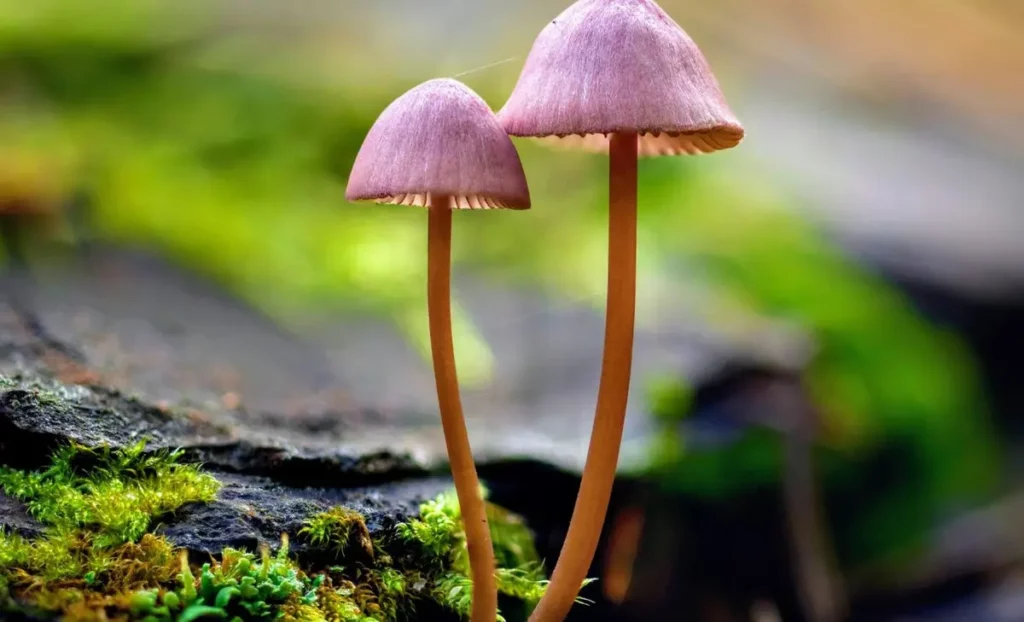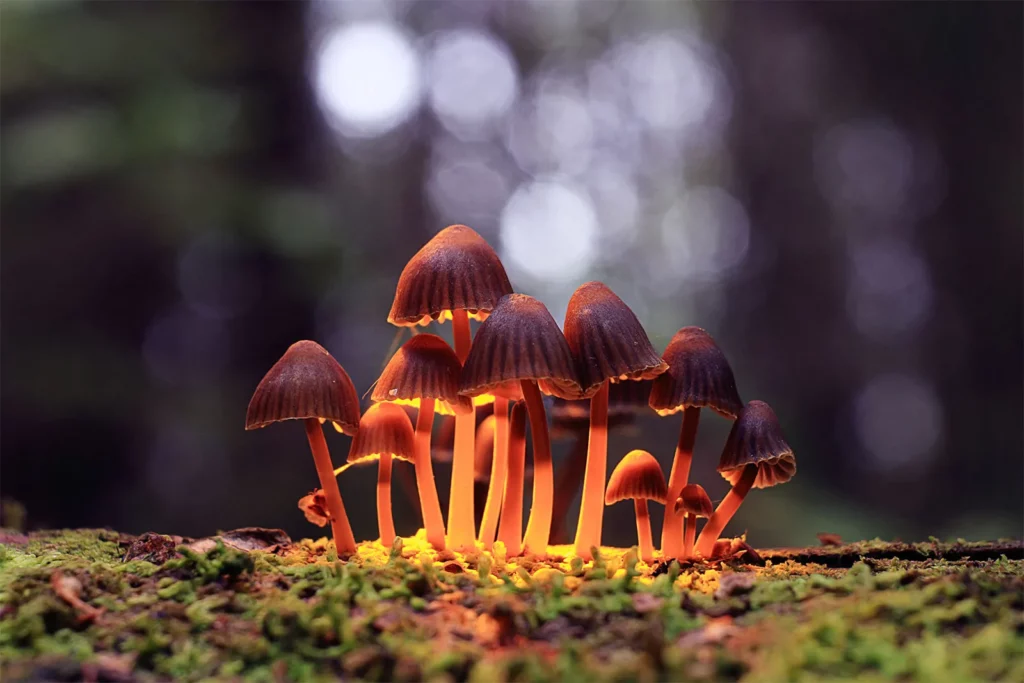Introduction
In recent years, the practice of microdosing magic mushrooms has gained widespread attention. From Silicon Valley entrepreneurs seeking a creative edge to individuals battling depression and anxiety, many are turning to sub-perceptual doses of psilocybin—the active compound in magic mushrooms—for potential mental and emotional benefits. But is microdosing just another wellness trend, or could it truly represent a new frontier in mental health treatment?
What Is Microdosing?
Microdosing refers to the practice of consuming very small, sub-perceptual amounts of a psychedelic substance—typically around 1/10 to 1/20 of a recreational dose. For psilocybin mushrooms, this generally means taking between 0.1 to 0.3 grams of dried mushrooms. The intent is not to induce hallucinations or a traditional psychedelic experience, but rather to experience subtle yet beneficial shifts in mood, mental clarity, and emotional balance.
Unlike a full psychedelic trip that can cause intense visual distortions and altered states of consciousness, a microdose is designed to be barely noticeable on a sensory level. Users report feeling slightly more focused, creative, and emotionally resilient, without any impairment to daily functioning. In fact, most people who microdose are able to go about their normal routines—working, socializing, and exercising—while experiencing these gentle enhancements.
The typical microdosing schedule follows a pattern such as one day on, two days off, though protocols can vary. This intermittent use helps prevent building a tolerance and allows the user to reflect on subtle changes in mood or cognition. Over time, some individuals report improved mental health, greater self-awareness, and a reduction in symptoms related to anxiety or depression.
Microdosing has gained popularity in recent years among professionals, artists, and those seeking personal growth or relief from emotional struggles—all while avoiding the intense effects associated with full-dose psychedelics.
The Rise in Popularity

The growing interest in microdosing can be traced to anecdotal reports and early studies suggesting cognitive and emotional benefits. Advocates claim microdosing helps them feel more present, creative, emotionally balanced, and productive. Social media, podcasts, and documentaries have further fueled its popularity, making microdosing a hot topic in wellness and mental health circles.
Reported Benefits
While rigorous, large-scale clinical trials are still limited, many users report:
1. Improved Mood and Reduced Symptoms of Depression
Many individuals who microdose psilocybin report a noticeable uplift in their overall mood. Unlike traditional antidepressants, which can take weeks to show results, some microdosers claim they feel emotionally lighter and more balanced within days. Psilocybin interacts with serotonin receptors in the brain, which play a major role in regulating mood and emotion. This interaction may help alleviate the symptoms of depression, especially in those who have not responded well to conventional treatments.
2. Increased Creativity and Focus
One of the most talked-about benefits of microdosing is enhanced cognitive function—particularly in the areas of creativity and concentration. Users often describe entering a “flow state” more easily, where ideas come naturally and problem-solving feels intuitive. This has made microdosing especially popular among creatives and professionals in high-stress industries looking for a cognitive edge without the jitteriness of stimulants.
3. Heightened Emotional Awareness
Microdosing doesn’t just affect thought patterns—it may also deepen emotional perception. Users often report feeling more connected to their emotions and better able to process them. This heightened awareness can lead to more meaningful interpersonal interactions, stronger empathy, and improved self-understanding. For some, this emotional clarity is therapeutic in itself, helping to resolve internal conflicts or longstanding emotional pain.
4. Reduced Anxiety and Social Fear
While high doses of psychedelics can sometimes trigger anxiety, low doses may do the opposite. Microdosers frequently report feeling calmer and more at ease in social settings. This may be due to psilocybin’s influence on the amygdala, the part of the brain that processes fear and stress. By calming overactive fear responses, microdosing may help reduce social anxiety and foster a sense of connectedness.
5. Better Stress Management
Life’s daily stressors can often feel overwhelming—but many microdosers say they feel more resilient and less reactive to stress. This may be due to psilocybin’s ability to promote neuroplasticity—the brain’s ability to form new connections and adapt. By potentially rewiring stress-response pathways, microdosing could help users approach challenges with a clearer, more composed mindset.
Some small studies and early-stage research support these claims, particularly regarding psilocybin’s potential to “reset” neural pathways associated with depression.
Also Read: The Benefits of Magic Mushrooms: Exploring Nature’s Psychedelic Healer
The Science So Far
Scientific interest in psychedelics has grown rapidly. A 2020 study published in Psychopharmacology found that microdosing psilocybin was associated with improved mood, focus, and creativity. However, most current studies rely on self-reported data and lack placebo controls, meaning results may be influenced by expectations rather than the drug itself.
Larger clinical trials are now underway to determine whether microdosing offers genuine therapeutic effects or is largely the result of the placebo effect.
Risks and Considerations
Despite its popularity, microdosing psilocybin isn’t risk-free:
- Psilocybin is still a controlled substance in many countries and states, which can lead to legal consequences.
- Long-term effects of frequent microdosing are not yet fully understood.
- Individuals with a history of mental illness should be cautious, as psychedelics may worsen symptoms in some cases.
- Standardized dosing is difficult, especially when using natural mushrooms, which can vary in potency.
Is It a Trend or a Real Treatment?
The truth may lie somewhere in between. While microdosing magic mushrooms may offer real benefits for some, science hasn’t yet caught up to the hype. It’s possible that microdosing psilocybin holds true therapeutic potential, especially in the treatment of depression, anxiety, and PTSD. However, until more research is done, it remains an experimental practice, not a medically approved treatment.
Conclusion
Microdosing magic mushrooms is more than just a passing trend—it reflects a broader interest in natural, alternative solutions for mental health. While anecdotal evidence is strong, it’s crucial to approach microdosing with caution, research, and awareness of legal issues.
If you’re considering microdosing, consult with a medical professional, and keep an eye on ongoing research. As the science evolves, we may soon have clearer answers on whether microdosing is a revolutionary treatment—or just a modern placebo.

